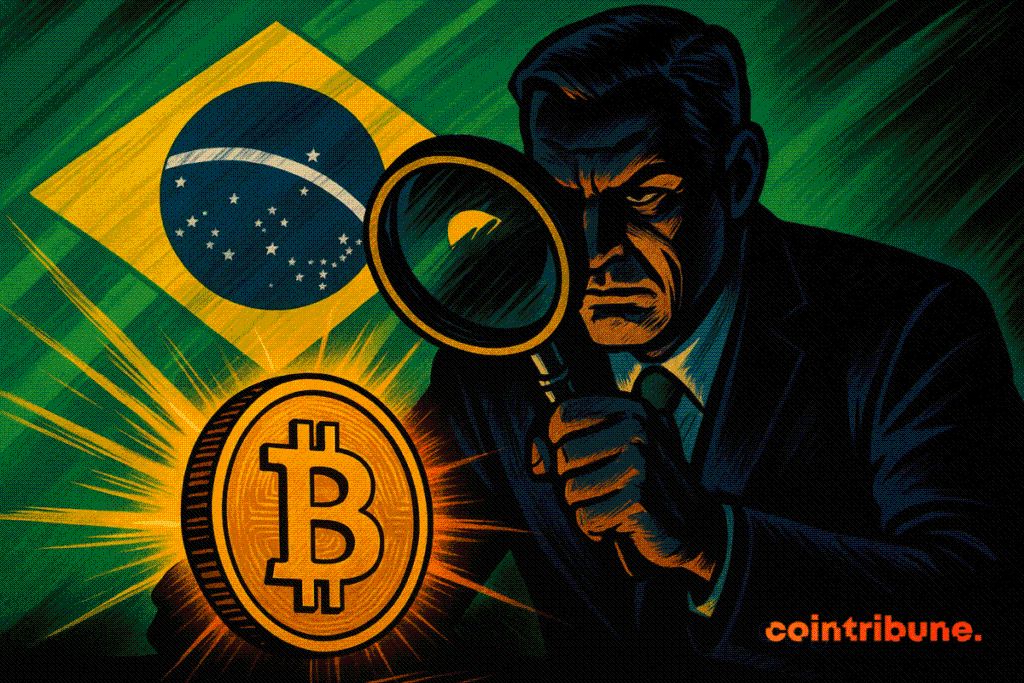Brazil Introduces Banking-Level Oversight for Crypto and Stablecoin Operations
Brazil has taken a significant step toward bringing stablecoin activity under its traditional financial system. New regulations issued by the Banco Central do Brasil (BCB) grant stablecoin transactions the same legal treatment as foreign-exchange operations and subject crypto companies to a licensing regime similar to that of banks.

In brief
- Brazil’s new BCB rules give stablecoin transfers FX-level treatment and tighten oversight on crypto service providers.
- SPSAV licensing brings crypto brokers and custodians under banking-grade standards for AML and transparency.
- Stablecoin transfers face strict documentation, user identification, and limits on unlicensed foreign intermediaries.
- New requirements may push smaller crypto firms to consolidate as 2026 deadlines drive major compliance shifts.
Crypto Brokers and Custodians Face Banking-Level Standards Under New BCB Rules
Brazil’s central bank has released Resolutions 519, 520, and 521, which establish operational standards and authorization procedures for a new category of licensed virtual-asset service providers known as Sociedades Prestadoras de Serviços de Ativos Virtuais (SPSAVs).
These rules subject crypto brokers, custodians, and intermediaries to requirements already applied to traditional financial institutions, including consumer protection, transparency, and Anti-Money Laundering (AML) controls.
The rules will take effect on February 2, 2026, followed by mandatory reporting for capital-market and cross-border operations on May 4, 2026. Crypto firms are expected to adjust internal processes well before those deadlines.
BCB Tightens Oversight as Stablecoin Transfers Face FX-Level Scrutiny
Resolution 521 reclassifies the purchase, sale, and exchange of fiat-pegged virtual assets as foreign-exchange operations. Payments or transfers involving stablecoins —whether domestic or international—must comply with FX regulations and will fall under the same supervision that governs currency trades and remittances.
Only licensed FX institutions and SPSAVs may carry out these transactions, which are subject to documentation and value thresholds. Transfers involving unlicensed foreign entities will be limited to $100,000 per transaction.
One key measure addresses transfers to and from self-custodied wallets when a service provider facilitates the movement. Providers must identify wallet owners and verify the sources and destinations of assets, even when transfers remain within Brazil. Officials consider this an essential step to close gaps that have existed outside regulated finance.
According to the BCB, the new framework is designed to improve efficiency and provide greater legal certainty across crypto markets. Regulators also intend for stablecoin flows to be reflected in Brazil’s balance of payments statistics, highlighting the sector’s growing influence.
New Rules Push Brazilian Crypto Firms Toward Banking-Level Compliance
Central Bank President Gabriel Galipolo noted earlier this year that around 90% of Brazil’s cryptocurrency activity involves stablecoins, which are often used as payment instruments. Authorities have expressed concern that such widespread use can create gaps in oversight related to money laundering and taxation.
At the core of the policy package is a series of measures redefining how service providers handle stablecoin and wallet activity. These include:
- Mandatory identification of users involved in wallet-linked transfers.
- Documentation requirements for every FX-classified stablecoin transaction.
- Limits on transfers conducted through unlicensed foreign partners.
- Obligations to verify the origin and destination of assets.
- Reporting requirements for capital-market and cross-border flows .
Officials believe these measures will help reduce fraud and restrict illicit activity while giving crypto firms a clearer regulatory framework. Industry participants acknowledge that the rules do not prohibit self-custody but impose stricter requirements on providers that interact with self-held wallets. This shift draws more crypto activity into Brazil’s formal financial channels.
Smaller crypto businesses may come under pressure as compliance demands increase. Meeting banking-level standards could push some companies to consolidate, form partnerships with larger institutions, or narrow their service offerings. Meanwhile, larger and better-capitalized firms may find it easier to adapt to the new licensing framework.
Brazil has become one of Latin America’s busiest cryptocurrency markets , ranking just behind Argentina in overall activity. The new rules indicate that crypto remains welcome within Brazil’s financial system, though it must now operate under regulations similar to those governing fiat currency. Hence, the months ahead are expected to bring early restructuring across the industry as providers prepare for the 2026 implementation dates.
Disclaimer: The content of this article solely reflects the author's opinion and does not represent the platform in any capacity. This article is not intended to serve as a reference for making investment decisions.
You may also like
Zcash News Update: Institutions Turn to Zero-Knowledge Proofs Amid Ethereum’s Privacy Shortcomings
- Institutional investors are shifting to zero-knowledge proof (ZKP) technologies as Ethereum's privacy limitations drive demand for privacy-preserving blockchain solutions. - ZKP, a $100M-funded project with AI-focused Proof Pods and institutional-grade infrastructure, contrasts with speculative assets like Aptos and Chainlink . - Zcash faces scrutiny as its privacy benefits are undermined by custodial platforms, while 20-25% of ZEC now uses shielded transactions despite price declines. - Franklin Templet

Aerodrome and Velodrome merge into Aero, expanding to Ethereum and Circle’s Arc

Bitcoin sees its second-largest weekly whale accumulation of 2025

Figure to launch $YLDS, a public debt security on Solana backing yields with US Treasuries

